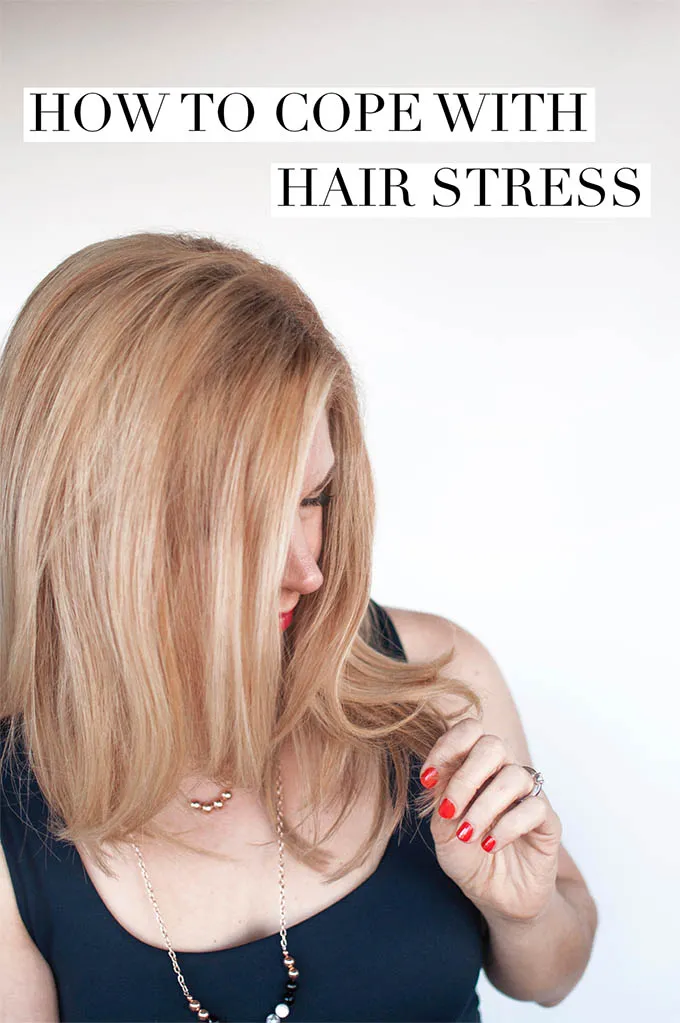Stress and Strands: Managing Hair and Life Stressors for a Vibrant You
Stress has become a constant in our lives, acting like a silent villain, causing havoc on our overall well-being and hair health. The connection between stress and hair loss is significant, drawing a direct line from your mental health to your physical appearance. You might be familiar with finding strands of hair on your pillow or in your shower, a harsh reality for those struggling with stress. However, you can turn this around. By managing stress and caring for your hair health, you can improve your life quality and flaunt vibrant, healthy hair. Let’s explore how to achieve this!
Table of Contents
The Impact of Stress on Hair Health
Stress affects your mood, mental health, and physical health, including your hair. Understanding the impact of stress on hair growth is crucial to managing its effects. When stressed, your body produces more cortisol, which can disrupt the hair growth cycle. As a result, hair spends less time in the growth phase and more time in the resting phase, eventually leading to hair fall.
Moreover, stress can lead to certain conditions, such as Telogen Effluvium, where significant stress pushes large numbers of hair follicles into a resting phase. Within a few months, affected hairs might fall out suddenly when simply combing or washing your hair. Other stress-related conditions, such as Alopecia Areata, make the body’s immune system attack the hair follicles, leading to hair loss. Learning to manage stress will help maintain normal hair growth, a step towards a healthier and more vibrant you!
Identifying Life Stressors
To manage stress effectively, you must first identify its sources. Life stressors can take many forms, and the hair loss you’re experiencing might be a physical manifestation of these stressors. The link between hair loss and stress is real, so take a moment to reflect on your daily routines and challenges. Potential life stressors can include:
- Work or school pressures;
- family or relationship issues;
- financial worries;
- health concerns or chronic illness;
- major life changes, such as moving or losing a loved one.
After identifying the stressors, start developing coping mechanisms or solutions for each. You can’t always eliminate stress, but you can control your reactions. Remember, reducing stress will improve your hair health and contribute to your overall well-being.
The Role of Nutrition in Stress Management
Nutrition plays a pivotal role in stress management and indirectly impacts hair growth. A balanced diet provides the nutrients your body needs to combat stress. Foods rich in antioxidants, such as berries, nuts, and vegetables, can reduce inflammation and oxidative stress. Omega-3 fatty acids found in fish and walnuts have been shown to lower stress levels and improve mood.
Furthermore, B vitamins promote hair growth by aiding the creation of red blood cells, which carry oxygen and nutrients to the scalp and hair follicles. Deficiencies in these nutrients can lead to hair loss. Eating a balanced diet can reduce stress, promote hair growth, and improve overall health.
Exercise and Stress Reduction
Regular exercise is another powerful tool for managing stress and preventing losing hair from stress actions. Exercise increases the production of endorphins, your body’s natural mood boosters. Additionally, it can serve as a form of meditation, allowing you to focus on your body’s movements rather than your daily stressors. It can help distract you from negative thoughts that might be causing hair loss.
Exercise also improves blood circulation, stimulating hair growth by providing more oxygen and nutrients to your hair follicles. It’s important to remember, though, not to overdo it. Intense exercise without adequate recovery can also lead to stress and potentially exacerbate conditions like alopecia. Balance is key, so find the best routine to reduce stress, promote hair health, and maintain overall wellness.
Mindfulness and Meditation Techniques
Practicing mindfulness and meditation can be another powerful strategy for managing stress and mitigating hair loss. Mindfulness is about focusing on the present moment and calmly accepting it without judgment. This practice helps you break free from negative thought patterns that could escalate stress levels and contribute to hair loss.
Conversely, meditation provides an oasis of calm, allowing your body and mind to relax. Regular practice can lower cortisol levels, the stress hormone that impacts the hair growth cycle, leading to hair loss. A few minutes of mindfulness and meditation daily can significantly reduce stress and positively impact your hair health.
Hair Care Rituals for Stressful Days
Hair care is not just about keeping your strands clean and well-nourished. It’s also about taking a few moments for yourself amid the hustle and bustle of everyday life. Using hair care products enriched with essential nutrients like Vitamin B1 can benefit hair, helping to strengthen your strands and prevent thinning hair.
Vitamin B1, known as thiamine, improves your hair’s health by boosting your body’s ability to withstand stress. It aids in converting food into energy, which is crucial for maintaining healthy hair. So try vitamin B1 benefits for hair recovery! Establishing a hair care routine with nutrient-enriched products can be a therapeutic process that nourishes your hair and reduces stress.
Seeking Support and Professional Help
Sometimes, hair loss from stress can become overwhelming, and you might need additional support to manage it. It’s essential to remember that asking for help is a strength, not a weakness. Reach out to:
- A trusted friend or family member.
- A mental health professional, such as a psychologist or psychiatrist.
- Your general practitioner or a dermatologist.
Support can come in many forms, and professional help can offer valuable tools and techniques to manage stress effectively. They can also provide medical interventions, if necessary, to address hair loss. You don’t have to face this journey alone; lean on the support around you to navigate through these challenging times.
Lifestyle Changes for a Vibrant You
Making a few adjustments to your lifestyle can significantly impact your overall well-being, helping to manage hair loss and alleviate the impact of stress causing hair loss. First, maintain a balanced diet rich in vitamins and minerals to support hair health. Regular exercise, while avoiding overdoing it, can help balance your stress levels.
Consider your sleep patterns, too. Adequate sleep is vital for the body’s overall functioning, including hair growth. Lastly, limit the intake of alcohol and caffeine, as they can exacerbate stress and negatively impact hair health. Small, consistent changes can lead to a healthier, less stressed, and more vibrant you.
Embracing Change and Self-Care
Can stress cause hair loss? Accepting that stress is part of life and acknowledging that it can cause such health issues is the first step to self-care. Once you understand this, you can embrace change and prioritize self-care. Find activities you enjoy and help you relax – anything from reading a book, taking a long bath, painting, or spending time in nature.
Self-care isn’t just about physical health; it’s about managing your mental health. Learn to say no when necessary, set healthy boundaries, and take time off to rejuvenate. Embrace change as an opportunity for growth and remind yourself that it’s okay not to have everything under control all the time.
Final Words
Stress and hair loss are intertwined, but you can manage both effectively by identifying stressors, maintaining a balanced lifestyle, and prioritizing self-care. Remember, seeking professional help is a sign of strength, not weakness. Stress management and healthy hair growth go hand in hand with creating a vibrant, healthier you. Start today’s transformation journey and see how small steps can lead to significant changes. Embrace the journey!



















